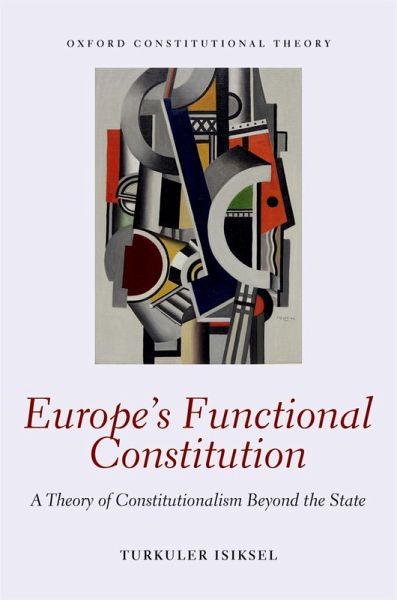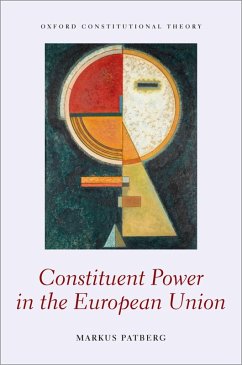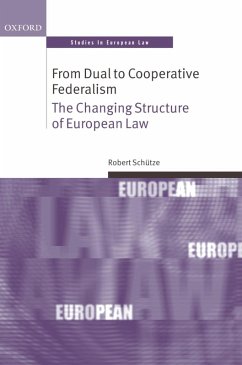
Europe's Functional Constitution (eBook, ePUB)
A Theory of Constitutionalism Beyond the State

PAYBACK Punkte
6 °P sammeln!
Constitutionalism has become a byword for legitimate government, but is it fated to lose its relevance as constitutional states relinquish power to international institutions? This book evaluates the extent to which constitutionalism, as an empirical idea and normative ideal, can be adapted to institutions beyond the state by surveying the sophisticated legal and political system of the European Union. Having originated in a series of agreements between states, the EU has acquired important constitutional features like judicial review, protections for individual rights, and a hierarchy of norm...
Constitutionalism has become a byword for legitimate government, but is it fated to lose its relevance as constitutional states relinquish power to international institutions? This book evaluates the extent to which constitutionalism, as an empirical idea and normative ideal, can be adapted to institutions beyond the state by surveying the sophisticated legal and political system of the European Union. Having originated in a series of agreements between states, the EU has acquired important constitutional features like judicial review, protections for individual rights, and a hierarchy of norms. Nonetheless, it confounds traditional models of constitutional rule to the extent that its claim to authority rests on the promise of economic prosperity and technocratic competence rather than on the democratic will of citizens. Critically appraising the European Union and its legal system, this book proposes the idea of 'functional constitutionalism' to describe this distinctive configuration of public power. Although the EU is the most advanced instance of functional constitutionalism to date, understanding this pragmatic mode of constitutional authority is essential for assessing contemporary international economic governance.
Dieser Download kann aus rechtlichen Gründen nur mit Rechnungsadresse in A, B, BG, CY, CZ, D, DK, EW, E, FIN, F, GR, HR, H, IRL, I, LT, L, LR, M, NL, PL, P, R, S, SLO, SK ausgeliefert werden.













